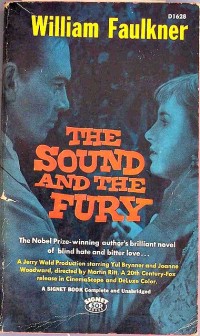You have no items in your cart. Want to get some nice things?
Go shopping
My girlfriend and I share a tiny box room in her mother’s crumbling council flat. Should we have been more successful?
Maybe. But then I don’t believe life is ever a success or failure, so the size of this small space I call my own does not concern me. On the walls there are a few posters sourced from my interests, designed to inspire. A Fight Club movie poster, Bowie in his Thin White Duke days, Caspar David Friedrich prints. On the door a Countryfile calendar my girlfriend took great pleasure in buying is littered with impressive shots of naturalistic scenes, the sun setting over the ocean, lavender fields blown by the breeze. I sit in a creaking old dining table chair, typing on my stuttering laptop, carefully perched on the chest of drawers that sits beside this calendar. Squeezed against the bookcase containing my literary salvations I cannot avoid the many dates she has circled for my attention. In those circles she has written in her crude child like hand,
Short story due for competition x x x Love you x x x
She never writes which competition, as she doesn’t want me to worry. She says,
I know whatever you write will be well written so don’t worry about trying to impress them, just write it, then send it to me.
Her advice, kind, blind, faithful, is not hard to follow. An avid believer in free writing, I never plan anything. I have a line in my head, an idea of where it may go and then I just write while the ambient music I have on in the background cocoons itself around me, shutting out the over spilling lives of my neighbours. When I am finished, when I feel I can do no more, I send the stories to my girlfriend. Sometimes she says,
Well I know what that one was about.
This is because I invariably write about our life, or my past, and bury it within the cold, glass, neon lit city I am slowly becoming accustomed to.
And I know exactly where I am going to send it.
Ever since I reached the final of one of these competitions and was published in the proceeding anthology she has become convinced that this is the way to get my writing noticed. Is she right? Maybe. But the more I become immersed in this world of literature not found in libraries or bookshops, the more I am becoming convinced that it simply doesn’t matter.
Earlier on this year I applied for a place on the Creative and Life Writing Masters at Goldsmiths University. Thankfully I was accepted, because I was running out of ideas of what to do next. Recently I was sent the dreaded summer reading list. I say dreaded because I hate reading anything I am obliged to read. That includes books recommended, books forcibly lent by overzealous friends and reading lists packed with award winning, hard hitting, trail blazing pieces of literature. I have always thought that literature has to be found organically, driven by your own yearning, your own interests at that time, because obligation can never really be fully enjoyed.
So far I have read three from the list, all nominated for awards. One of them, marketed as an explosive piece of fiction that would change the reader forever was nominated for the Booker Prize. I am aware that what is written on the back of books is purely marketing, however all of these books have been selected to be studied, selected for prizes, and I can’t help asking why. Of course this is just my opinion, but then I guess herein lies the problem. These competitions, these awards, so important, lengthily discussed, take place every single year. Every year a new classic, a new epic, has to be found. Much of this is driven by industry, as well as our desire for the new, the glossy, the now, but I get the feeling that more often than not it’s a case of the emperor’s new clothes.

Last summer I read William Faulkner’s The Sound And The Fury and As I Lay Dying, not because Vintage put Nobel Prize Winner all over recent editions of his books but because what he had written about interested me. I also read The First Circle by Alexander Solzhenitsyn, another Nobel Prize Winner. Should I now compare the two, decide which one is the more worthy winner? Of course not, good literature is good literature, but that all depends on who is reading it.
Like the world of politics flitters from one school of thought to another so to does the world of literature. Idealists weaving paths through the lefts and rights of centre democracy become entrenched in totalitarianism. We are all invited to participate, but inevitably we disintegrate into arguing this is good, this is bad, this deserves your attention, this deserves your praise, until what comes through all seems the same, and malaise and apathy take hold. It’s all just personally informed opinion though. It’s all just yours and someone else’s words. It should never be judged as good or bad, it’s about what it makes you feel, and how do you compare the feelings of one against another?
My legs, confined to a small space for too long, need stretching. My mind keeps asking itself, Is this it? Is this how it was supposed to be? The Thin White Duke catches my eye, the dates on the calendar, my bookcase. Resting comfortably beside my Houellebecq’s, Atomised, Platform, sits Bruno Jasienski’s futurist masterpiece I Burn Paris. Nearly a century ago this book was banned, almost disappearing without a trace, but here it is in my bookcase, hallucinatory, political, a carousel of images seared onto my brain. It found me just when I needed it, despite its lack of exquisite, celebrated epitaphs and approvals.
Have you finished those short stories yet?
No. I ask myself Am I what they’re looking for? But I too am missing the point. I must strive to think not of winning or losing, the stamp of approval, good or bad. The very story my girlfriend submitted, TV Eye, the story that convinced her competitions were the way to go, was rejected by six literary magazines before it received any appreciation. I was told it wasn’t a short story. I was told the structure wasn’t right. I was told it was too experimental, whatever that means. There are always reasons. In the numerous other competitions she has entered me in, I’ve been long listed, short listed, and totally ignored. Literature will always find its audience, however big or small, in spite of not because of the gospel of awards, the preaching of blurbs. For we seek only the right words. Only what’s new to us. Everything else takes care of itself.

About Reece Choules
Reece Choules is a regular contributor to both Litro and The Culture Trip. He lives and works in South London.



